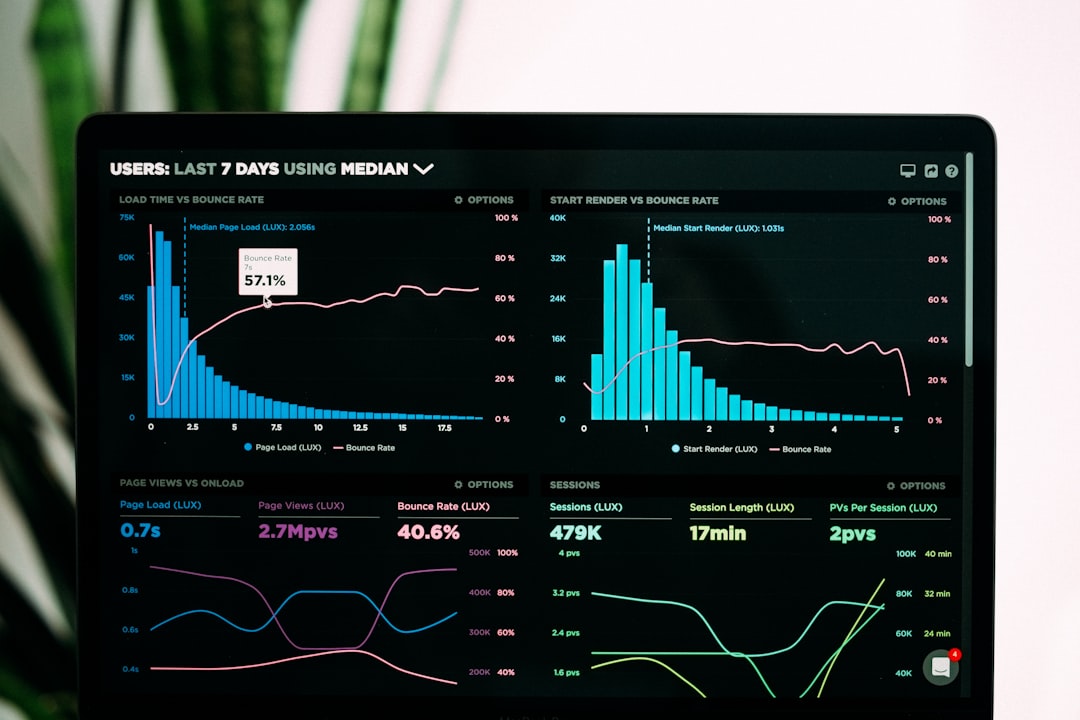Unlock encrypted content
Please enter your SSCE key to initiate on-the-fly decryption.
Decryption key: (Click cancel if you don't have the key)
Copied link to clipboard.
This feature is unavailable for free accounts. Upgrade now and enjoy all Premium benefits.
Go Premium!
This feature is unavailable for free accounts. Upgrade now and enjoy all Premium benefits.
Go Premium!
Please open this page in browser ( Google Chrome or Safari ) to use this feature.
Open In Browser
Blockchain Data Storage: Revolutionizing File Management and Ensuring Data Security
Random related video for this blog.
Copied share link to clipboard.
From biotechnology to space exploration, the need for efficient and secure data storage solutions has never been greater. Traditional methods of file management and storage, such as cloud storage, have their limitations when it comes to data security, reliability, and file synchronization. However, the emergence of blockchain technology is changing the game, offering a decentralized and secure solution for data storage and file management.
Blockchain Data Storage: A Paradigm Shift in File Management
Blockchain, the underlying technology behind cryptocurrencies like Bitcoin, is a distributed ledger system that enables secure and transparent transactions. However, its potential extends beyond financial applications. Blockchain can be leveraged to create a decentralized and tamper-proof data storage network, revolutionizing the way we manage and store files. By utilizing blockchain technology, data is stored in a decentralized manner across multiple nodes, eliminating the need for a central authority or intermediary. This ensures that files are not only secure but also resistant to tampering or unauthorized access. Each file is encrypted and divided into smaller chunks, which are then distributed across the network. This makes it virtually impossible for hackers to compromise the integrity of the data, as they would need to gain control of a majority of the network's nodes to alter or manipulate the information.Data Security: A Top Priority in the Digital Era
With cyber threats on the rise, data security has become a top priority for organizations across various industries. Traditional cloud storage solutions often rely on a centralized server, making them vulnerable to hacking or data breaches. In contrast, blockchain-based data storage offers enhanced security through encryption and decentralization. Encryption is a fundamental aspect of blockchain data storage. Each file is encrypted using advanced cryptographic algorithms, ensuring that only authorized users have access to the information. Additionally, the decentralized nature of blockchain meansthat there is no single point of failure. Even if one node is compromised, the data remains secure as other nodes in the network retain copies of the encrypted files. This makes blockchain data storage an ideal solution for industries dealing with sensitive information, such as healthcare, finance, and legal sectors.
File Synchronization and Collaboration Made Easy
One of the challenges of traditional file management systems is ensuring that multiple users can access and collaborate on files simultaneously. Blockchain data storage addresses this issue by providing seamless file synchronization and collaboration capabilities. By leveraging smart contracts, blockchain-based file management systems can automate file synchronization across devices and users. Changes made to a file by one user are automatically updated and reflected in real-time for all authorized users. This eliminates the need for manual file transfers or version control, streamlining collaboration and increasing productivity. Moreover, blockchain-based file management systems enable secure and efficient sharing of files with external parties. Through the use of cryptographic keys, users can grant temporary access to specific files or folders, ensuring that only authorized individuals can view or edit the shared content. This level of control and transparency enhances data security while facilitating seamless collaboration between stakeholders.Practical Applications and Future Trends
The potential applications of blockchain data storage are vast and span across various industries. For instance, in the field of biotechnology, where large volumes of genomic data are generated, blockchain can provide a secure and efficient storage solution. Researchers can store and share genomic data while maintaining data privacy and integrity. In the space industry, where vast amounts of data are collected from satellites and probes, blockchain data storage can ensure the reliability and accessibility of space-related information. This can facilitate collaboration between space agencies and researchers, leading to breakthrough discoveries and advancements in our understanding of the universe. Nanotechnology is another field that can benefit from blockchain data storage. As nanoscale devices and sensors generate copious amounts of data, blockchain can provide a secure and decentralized storage solution, enabling efficient data analysis and research. Swarm robotics, a field that involves the coordination of large numbers of robots, can also benefit from blockchain data storage. By securely storing and sharing data related to robot behavior and performance, researchers can collaborate and develop more advanced robotic systems. As blockchain technology continues to evolve, we can expect further advancements in data storage and file management. The integration of artificial intelligence and machine learning algorithms with blockchain can enhance data analysis capabilities, allowing for more efficient and accurate decision-making. In conclusion, blockchain data storage is revolutionizing file management by providing a secure, decentralized, and efficient solution. The technology offers enhanced data security, reliable file synchronization, and seamless collaboration capabilities. With its potential applications in various industries, blockchain data storage is poised to shape the future of data management and storage. To experience the benefits of blockchain data storage and file management, explore FileLu – a leading provider offering secure and reliable cloud storage solutions. With premium plans ranging from 256 GB to 500 TB at affordable prices, FileLu is the ideal choice for individuals and businesses looking for secure and efficient data storage solutions.By Amelia Isabella
Email: [email protected]
Related
File Streaming: Revolutionizing File Management with Blockchain Technology and Biometric...
July 25, 2023
Read More
Technological Advancements in Vehicle Automation: Streamlining Files and Folders Management
July 25, 2023
Read More
FileLu.com: Revolutionizing File Management in the Internet of Everything Era.
July 25, 2023
Read More
The Advancements and Implications of Genetic Modification, Space Exploration, and...
July 25, 2023
Read More
Popular
Exploring the Intersection of Technology: From Cybersecurity to Augmented Reality...
November 16, 2025
Read More
The Future of Technology: Exploring Biohacking, Space Tourism, and Digital...
November 23, 2025
Read More
The Future of File Sharing: Streamlined Workflows for Photographers and...
November 19, 2025
Read More
Exploring the Benefits of Cloud Storage and Innovative Technologies in...
November 26, 2025
Read More
The Future of Digital Transformation: Exploring Smart Homes, Efficient File...
November 30, 2025
Read More
Latest
The Future of Digital Transformation: Exploring Smart Homes, Efficient File...
November 30, 2025
Read More
Exploring the Benefits of Cloud Storage and Innovative Technologies in...
November 26, 2025
Read More
The Future of Technology: Exploring Biohacking, Space Tourism, and Digital...
November 23, 2025
Read More
The Future of File Sharing: Streamlined Workflows for Photographers and...
November 19, 2025
Read More
Exploring the Intersection of Technology: From Cybersecurity to Augmented Reality...
November 16, 2025
Read More
The Future of File Management: Embracing Edge Computing and Efficient...
November 12, 2025
Read More
The Future of File Sharing: Exploring User-Friendly Solutions and Data...
November 5, 2025
Read More
The Future of Cloud Storage: How FileLu Empowers Creative Professionals...
November 2, 2025
Read More
The Future of Autonomous Technologies: Innovations in Robotics, File Sharing,...
October 29, 2025
Read More
Emerging Technologies Revolutionizing File Management: From Li-Fi to Robust Collaboration...
October 26, 2025
Read More
Emerging Technologies: Exploring the Impact of File Access Auditing, Genetic...
October 19, 2025
Read More
The Future of Data Storage: Exploring Advanced Encryption, Mobile Integration,...
October 5, 2025
Read More
Exploring the Future of Data Management: Security, Efficiency, and Cognitive...
September 28, 2025
Read More
Revolutionizing Data Management: Innovations in Storage, Security, and Sustainable Technology.
September 24, 2025
Read More






















